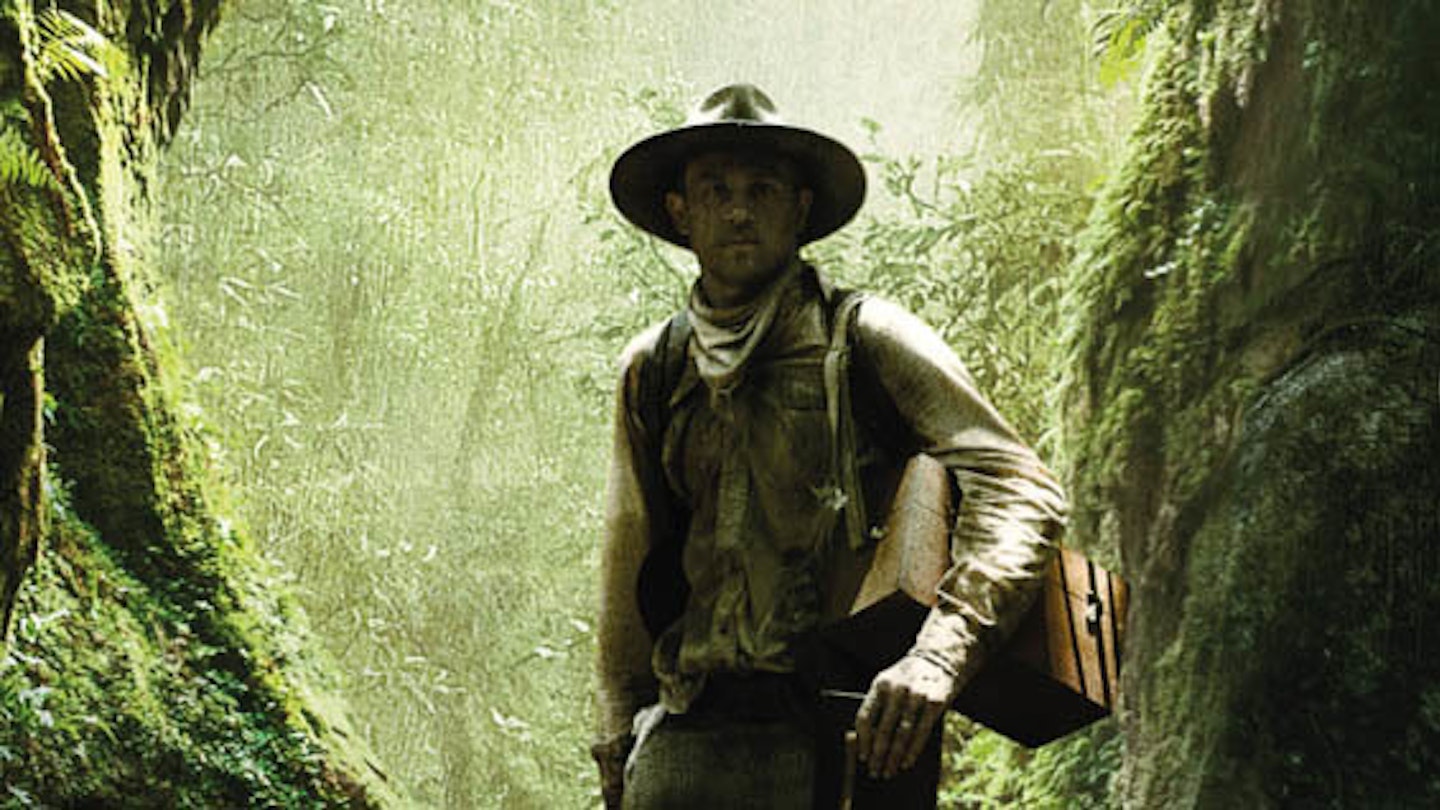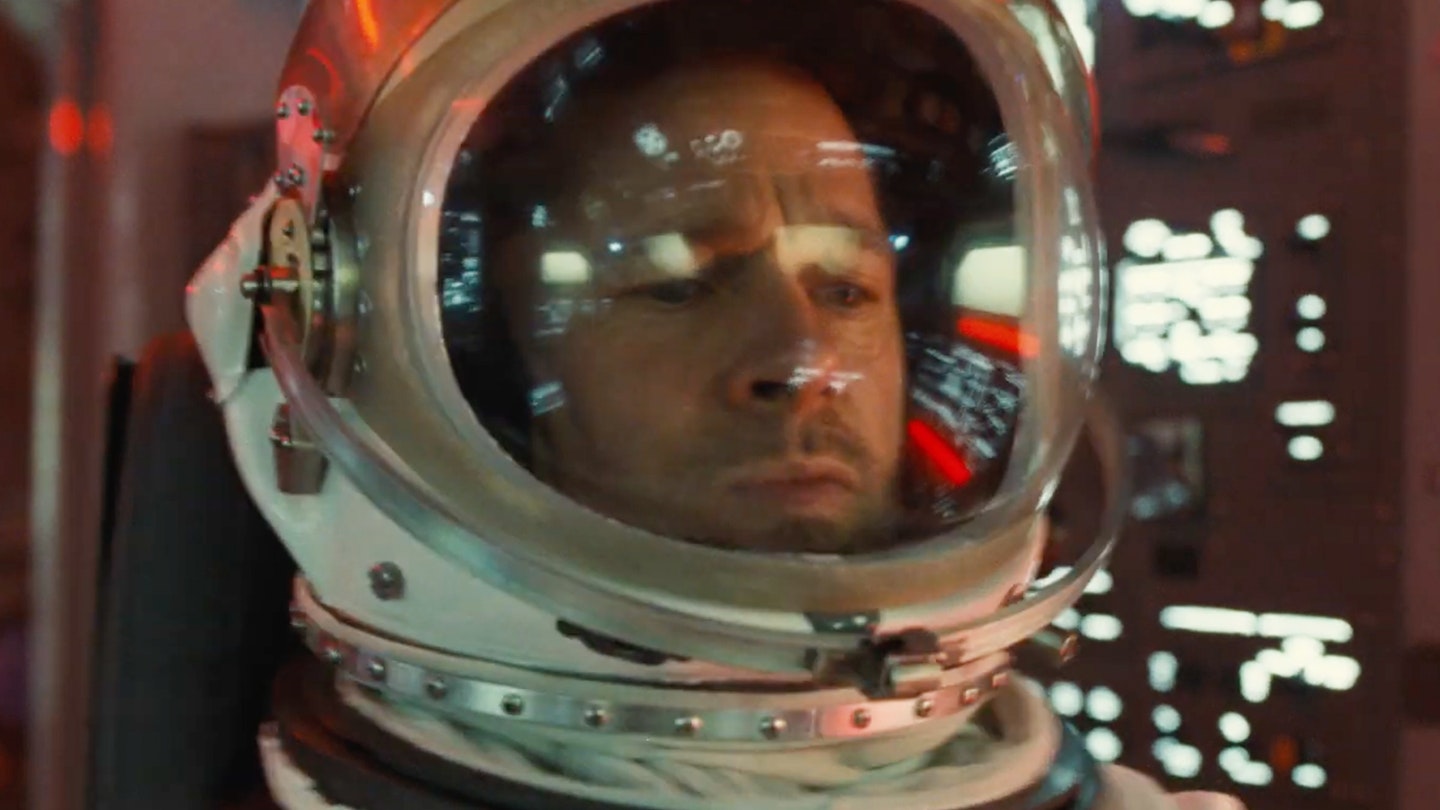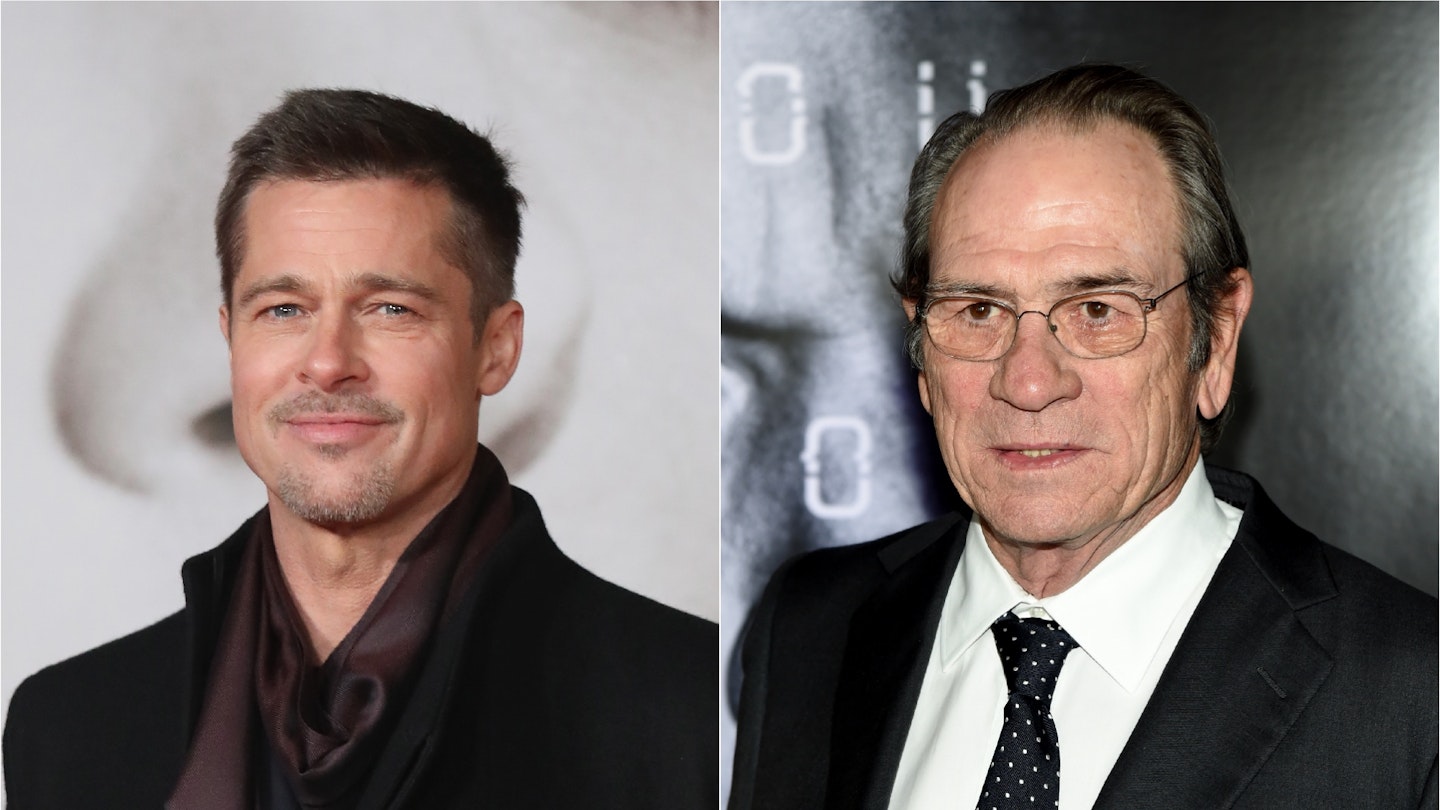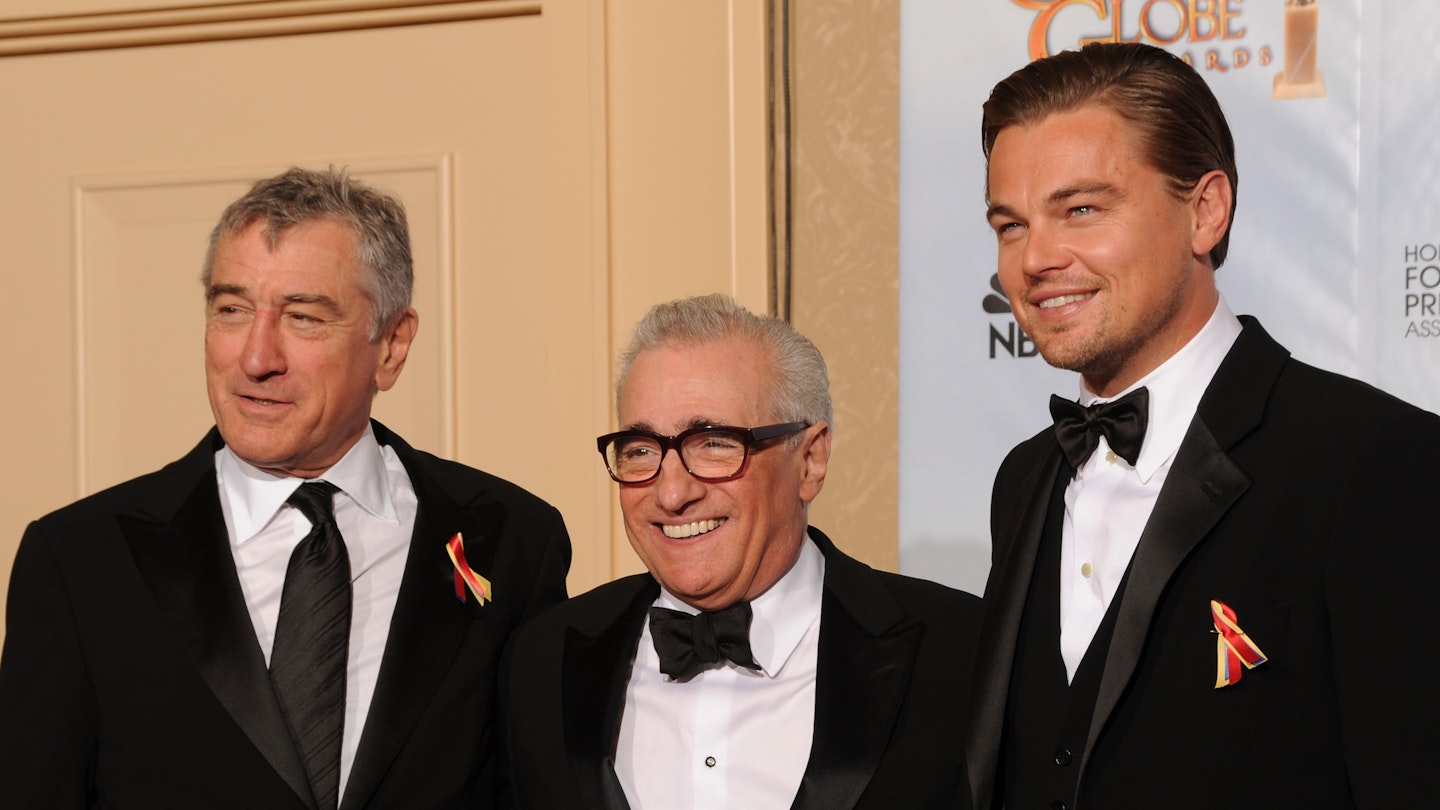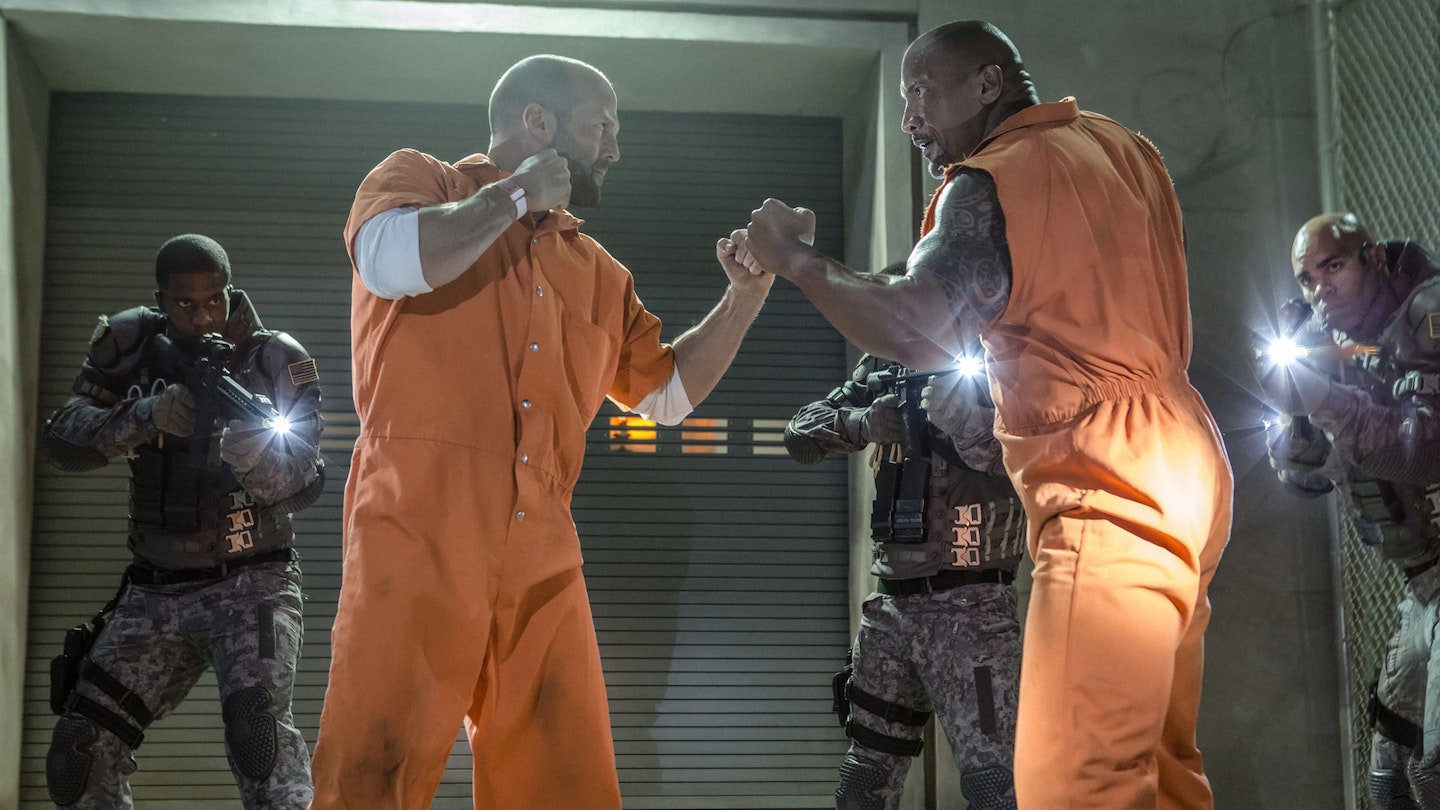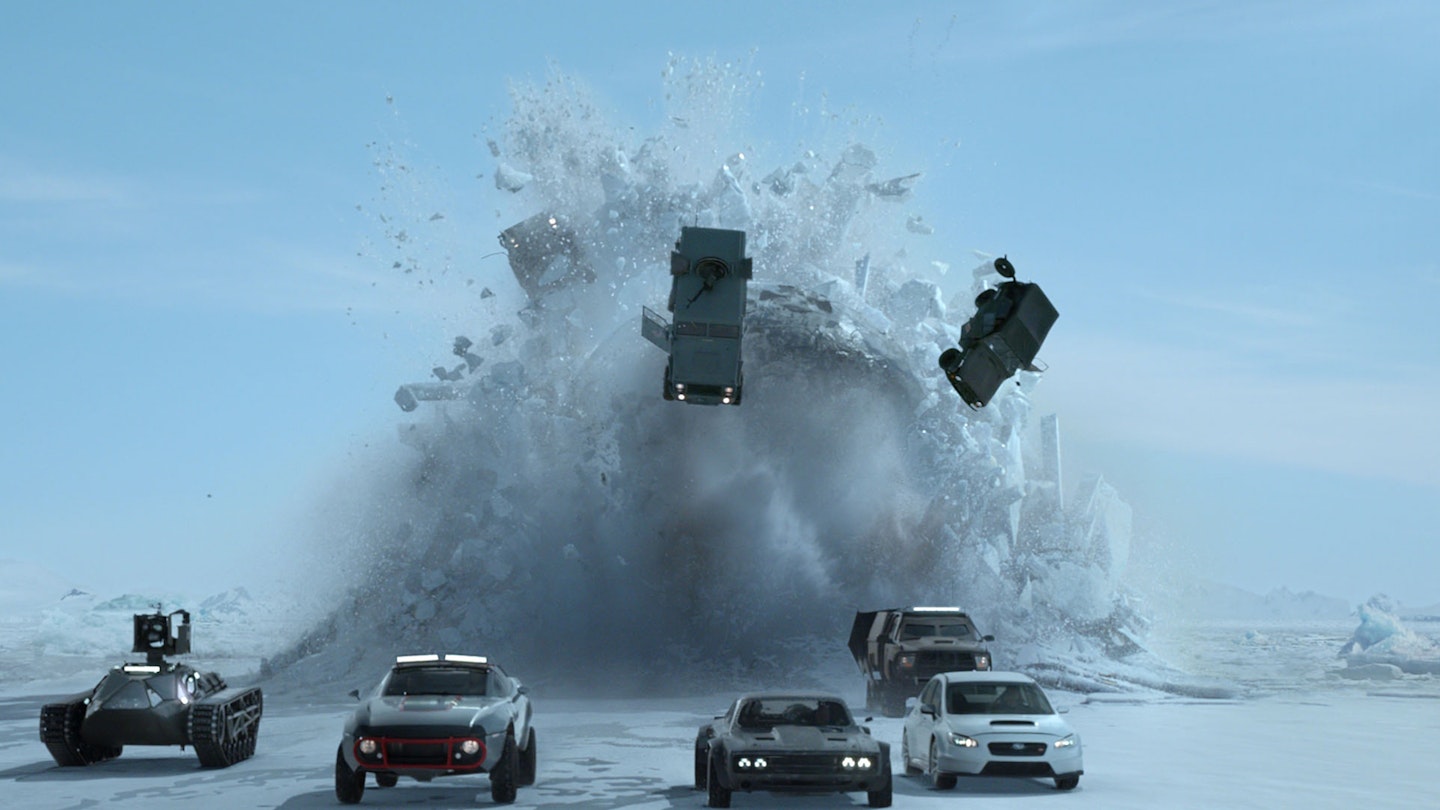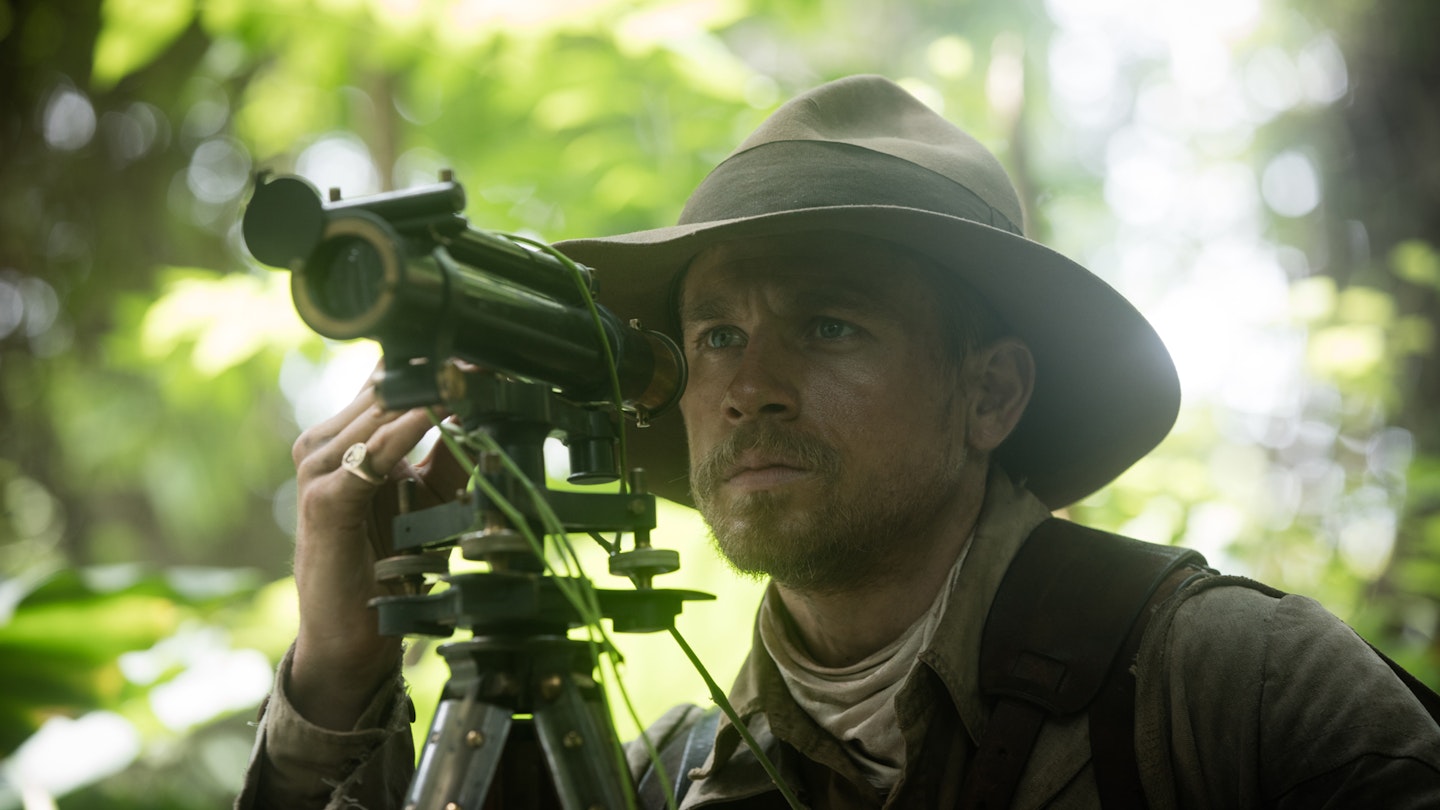Having spent much of his career channelling the grit and glower of ’70s crime cinema (see: Little Odessa, The Yards and We Own The Night), it’s no surprise to find that James Gray’s latest movie just as faithfully echoes the same era — albeit in a very different way. In The Lost City Of Z he takes us far from the Scorsese-esque mean streets of the East Coast and drops us deep into the verdant, even meaner murk of a Herzogian wilderness.
Aguirre, The Wrath Of God is the obvious touchpoint, with its own doomed quest to find a jungle-swallowed city. As in Herzog’s unsettling 1972 epic, Gray’s shadowy jungle is an amoral, brutal and sometimes surreal force to be warily respected, rather than some bright, romantic pulp-fiction playground. The Amazon rainforest is a “green desert” where any passing non-indigenous human is little more than a walking buffet for mosquitoes, piranha, jaguars and cannibals. It is a powerful and visceral portrayal of a truly unmerciful landscape.
Somehow simultaneously unnerving and sublime.
Though Major Percy Fawcett is no wild-eyed Aguirre. Known to his contemporaries as “the David Livingstone of the Amazon”, and an inspiration for Sir Arthur Conan Doyle’s The Lost World, he was one of the last great British explorers — a man who, until he himself became as lost as the city he sought, kept his composure and dignity amid the heat, starvation and occasional deluge of tribal arrows. In Gray’s script (adapted from The New Yorker writer David Grann’s superbly illuminating history) this fascinating character comes with the added baggage of social ostracism; “He’s been rather unfortunate in his choice of ancestors,” one snooty superior notes. So success as an explorer is not merely a question of satisfying his intrepid nature; as Fawcett says to his boozy aide-de-camp Costin (Robert Pattinson, hidden beneath specs and a bushy beard), “My reputation as a man rests entirely on our success.”
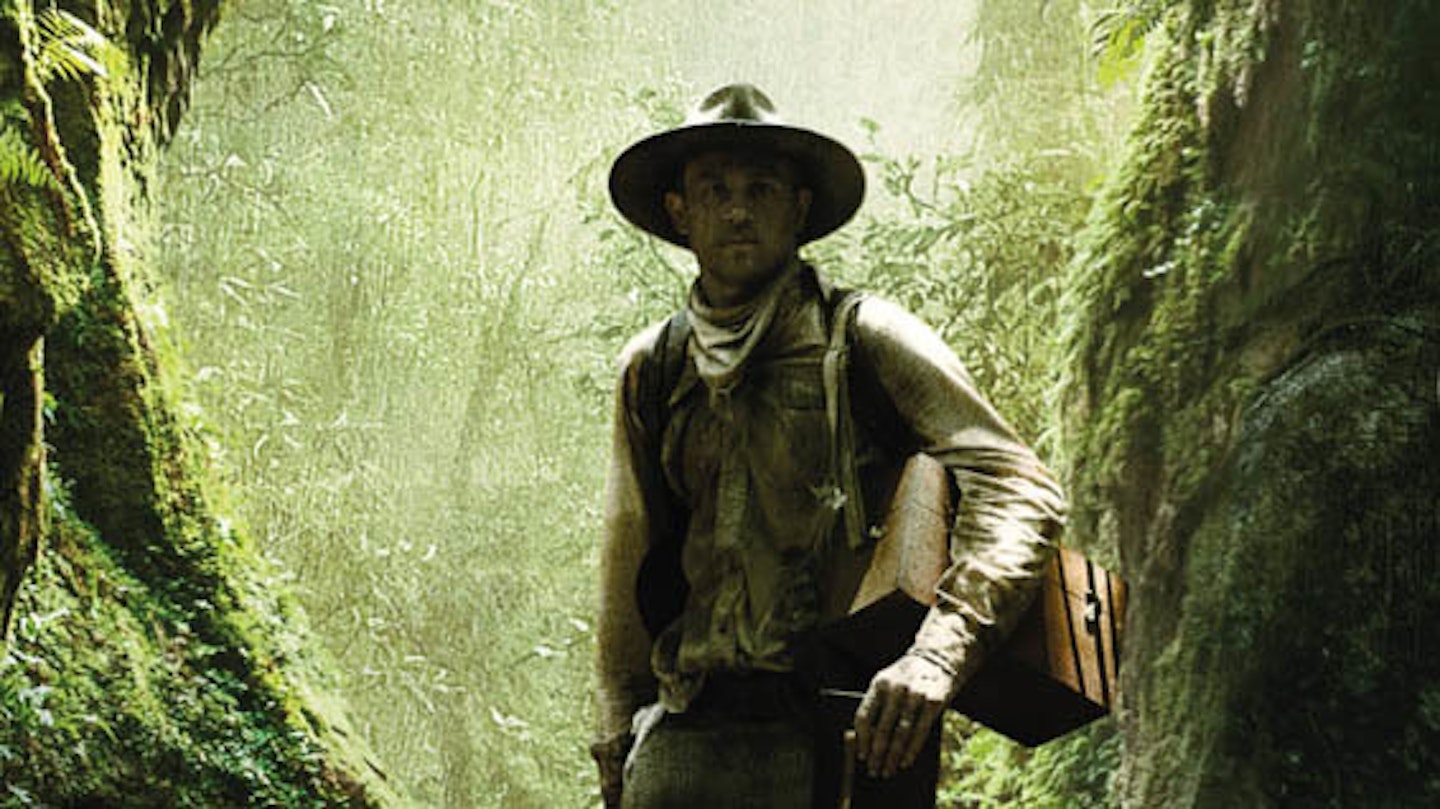
In casting the role, Gray has taken something of a gamble. Charlie Hunnam’s broad-shouldered, laddish swagger seems an odd fit for the rake-thin, ramrod-straight gentleman explorer, who we follow through two decades of life. And while Hunnam largely holds up well under the pressure of his most demanding role yet, he is a less compelling presence during the quieter scenes with Fawcett’s ahead-of-her-time wife Nina (Sienna Miller, underused in yet another sidelined-spouse role) and, later, his grown-up son Jack (Tom Holland). He is a man for hacking at the tangled undergrowth or, in a dramatic mid-film diversion, scrambling across the barbed-wire and chlorine-gas plagued no-man’s land of the Somme.
Which isn’t to place the blame for the film’s lapses in momentum squarely at Hunnam’s door. Gray’s three-act/three-expedition structure necessitates in-between-adventure stretches which, while highlighting Fawcett’s listlessness and impatience to get back to finding Z, may also test your own patience a little and make the 141-minute running time feel significantly longer.
It’s a difficult story to end, too, its appeal to Grann being its status as one of modern history’s great unsolved mysteries. But here Gray excels, going out on an oblique but elegant note that is somehow simultaneously unnerving and sublime.
